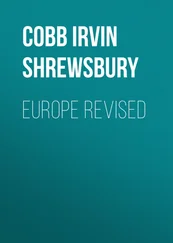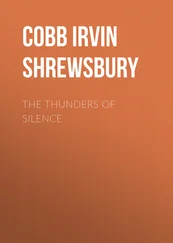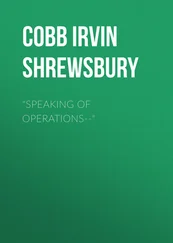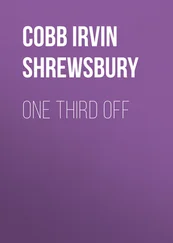Irvin Cobb - Sundry Accounts
Здесь есть возможность читать онлайн «Irvin Cobb - Sundry Accounts» — ознакомительный отрывок электронной книги совершенно бесплатно, а после прочтения отрывка купить полную версию. В некоторых случаях можно слушать аудио, скачать через торрент в формате fb2 и присутствует краткое содержание. Жанр: foreign_prose, foreign_language, на английском языке. Описание произведения, (предисловие) а так же отзывы посетителей доступны на портале библиотеки ЛибКат.
- Название:Sundry Accounts
- Автор:
- Жанр:
- Год:неизвестен
- ISBN:нет данных
- Рейтинг книги:4 / 5. Голосов: 1
-
Избранное:Добавить в избранное
- Отзывы:
-
Ваша оценка:
- 80
- 1
- 2
- 3
- 4
- 5
Sundry Accounts: краткое содержание, описание и аннотация
Предлагаем к чтению аннотацию, описание, краткое содержание или предисловие (зависит от того, что написал сам автор книги «Sundry Accounts»). Если вы не нашли необходимую информацию о книге — напишите в комментариях, мы постараемся отыскать её.
Sundry Accounts — читать онлайн ознакомительный отрывок
Ниже представлен текст книги, разбитый по страницам. Система сохранения места последней прочитанной страницы, позволяет с удобством читать онлайн бесплатно книгу «Sundry Accounts», без необходимости каждый раз заново искать на чём Вы остановились. Поставьте закладку, и сможете в любой момент перейти на страницу, на которой закончили чтение.
Интервал:
Закладка:
Coming to his gate he saw, near at hand, Squire Jonas, now a gnarled but still sprightly octogenarian, leaning upon a fence post surveying the universe at large, as was the squire's daily custom. He called out a good morning and waved his stick in greeting toward the squire with a gesture which he endeavored to make natural. His aging muscles, staled by thirty-odd years of lack of practice at such tricks, merely made it jerky and forced. Still, the friendly design was there, plainly to be divined; and the neighborly tone of his voice. But the squire, ordinarily the most courteous of persons, and certainly one of the most talkative, did not return the salutation. Astonishment congealed his faculties, tied his tongue and paralyzed his biceps. He stared dumbly a moment, and then, having regained coherent powers, he jammed his brown-varnished straw hat firmly upon his ancient poll and went scrambling up his gravel walk as fast as two rheumatic underpinnings would take him, and on into his house like a man bearing incredible and unbelievable tidings.
Mr. Stackpole opened his gate and passed out and started down the sidewalk. Midway of the next square he overtook a man he knew – an elderly watchmaker, a Swiss by birth, who worked at Nagel's jewelry store. Hundreds, perhaps thousands of times he had passed this man upon the street. Always before he had passed him with averted eyes and a stiff nod of recognition. Now, coming up behind the other, Mr. Stackpole bade him a cheerful good day. At the sound of the words the Swiss spun on his heel, then gulped audibly and backed away, flinching almost as though a blow had been aimed at him. He muttered some meaningless something, confusedly: he stared at Mr. Stackpole with widened eyes like one who beholds an apparition in the broad of the day; he stepped on his own feet and got in his own way as he shrank to the outer edge of the narrow pavement. Mr. Stackpole was minded to fall into step alongside the Swiss, but the latter would not have it so. He stumbled along for a few yards, mute and plainly terribly embarrassed at finding himself in this unexpected company, and then with a muttered sound which might be interpreted as an apology or an explanation, or as a token of profound surprise on his part, or as combination of them all, he turned abruptly off into a grassed side lane which ran up into the old Enders orchard and ended nowhere at all in particular. Once his back was turned to Mr. Stackpole, he blessed himself fervently. On his face was the look of one who would fend off what is evil and supernatural.
Mr. Stackpole continued on his way. On a vacant lot at Franklin and Clay Streets four small boys were playing one-eyed-cat. Switching his cane at the weed tops with strokes which he strove to make casual, he stopped to watch them, a half smile of approbation on his face. Pose and expression showed that he desired their approval for his approval of their skill. They stopped, too, when they saw him – stopped short. With one accord they ceased their play, staring at him. Nervously the batsman withdrew to the farther side of the common, dragging his bat behind him. The three others followed, casting furtive looks backward over their shoulders. Under a tree at the back of the lot they conferred together, all the while shooting quick diffident glances toward where he stood. It was plain something had put a blight upon their spirits; also, even at this distance, they radiated a sort of inarticulate suspicion – a suspicion of which plainly he was the object.
For long years Mr. Stackpole's faculties for observation of the motives and actions of his fellows had been sheathed. Still, disuse had not altogether dulled them. Constant introspection had not destroyed his gift for speculation. It was rusted, but still workable. He had read aright Squire Jonas' stupefaction, the watchmaker's ludicrous alarm. He now read aright the chill which the very sight of his altered mien – cheerful and sprightly where they had expected grim aloofness – had thrown upon the spirits of the ball players. Well, he could understand it all. The alteration in him, coming without prior warning, had startled them, frightened them, really. Well, that might have been expected. The way had not been paved properly for the transformation. It would be different when the Daily Evening News came out. He would go back home – he would wait. When they had read what was in the paper people would not avoid him or flee from him. They would be coming into his house to wish him well, to reëstablish old relations with him. Why, it would be almost like holding a reception. He would be to those of his own age as a friend of their youth, returning after a long absence to his people, with the dour stranger who had lived in his house while he was away now driven out and gone forever.
He turned about and he went back home and he waited. But for a while nothing happened, except that in the middle of the afternoon Aunt Kassie unaccountably disappeared. She was gone when he left his seat on the front porch and went back to the kitchen to give her some instruction touching on supper. At dinnertime, entering his dining room, he had, without conscious intent whistled the bars of an old air, and at that she had dropped a plate of hot egg bread and vanished into the pantry, leaving the split fragments upon the floor. Nor had she returned. He had made his meal unattended. Now, while he looked for her, she was hurrying down the alley, bound for the home of her preacher. She felt the need of his holy counsels and the reading of scriptural passages. She was used to queerness in her master, but if he were going crazy all of a sudden, why that would be a different matter altogether. So, presently, she was confiding to her spiritual adviser.
Mr. Stackpole returned to the porch and sat down again and waited for what was to be. Through the heat of the waning afternoon Clay Street was almost deserted; but toward sunset the thickening tides of pedestrian travel began flowing by his house as men returned homeward from work. He had a bowing acquaintance with most of those who passed.
Two or three elderly men and women among them he had known fairly well in years past. But no single one of those who came along turned in at his gate to offer him the congratulation he so eagerly desired; no single one, at sight of him, all poised and expectant, paused to call out kindly words across the palings of his fence. Yet they must have heard the news. He knew that they had heard it – all of them – knew it by the stares they cast toward the house front as they went by. There was more, though, in the staring than a quickened interest or a sharpened curiosity.
Was he wrong, or was there also a sort of subtle resentment in it? Was there a sense vaguely conveyed that even these old acquaintances of his felt almost personally aggrieved that a town character should have ceased thus abruptly to be a town character – that they somehow felt a subtle injustice had been done to public opinion, an affront offered to civic tradition, through this unexpected sloughing off by him of the rôle he for so long had worn?
He was not wrong. There was an essence of a floating, formless resentment there. Over the invisible tendons of mental telepathy it came to him, registering emphatically.
As he shrank back in his chair he summoned his philosophy to give him balm and consolation for his disappointment. It would take time, of course, for people to grow accustomed to the change in him – that was only natural. In a few days, now, when the shock of the sensation had worn off, things would be different. They would forgive him for breaking a sort of unuttered communal law, but one hallowed, as it were, by rote and custom. He vaguely comprehended that there might be such a law for his case – a canon of procedure which, unnatural in itself, had come with the passage of the passing years to be quite naturally accepted.
Читать дальшеИнтервал:
Закладка:
Похожие книги на «Sundry Accounts»
Представляем Вашему вниманию похожие книги на «Sundry Accounts» списком для выбора. Мы отобрали схожую по названию и смыслу литературу в надежде предоставить читателям больше вариантов отыскать новые, интересные, ещё непрочитанные произведения.
Обсуждение, отзывы о книге «Sundry Accounts» и просто собственные мнения читателей. Оставьте ваши комментарии, напишите, что Вы думаете о произведении, его смысле или главных героях. Укажите что конкретно понравилось, а что нет, и почему Вы так считаете.












